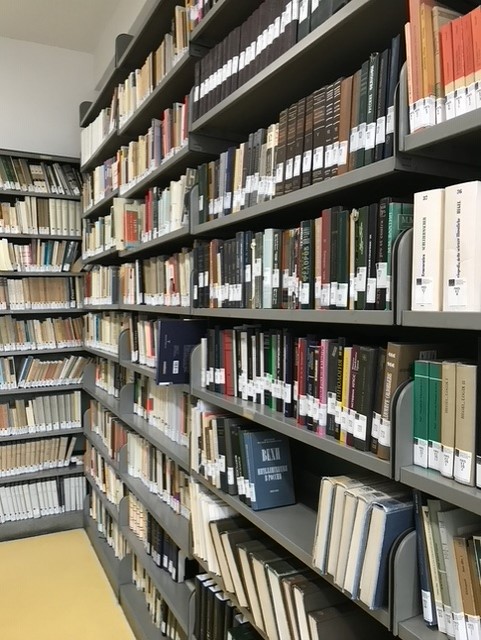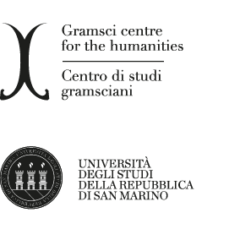We publish the paper that Daniela Steila, historian of philosophy and Slavist of the University of Turin, wrote for our site, about the personal library of Giovanni Mastroianni (1921-2016), historian of philosophy, philologist, Slavist, “pioneer of studies on Russian-Soviet thought”.
With Professor Mastroianni I had for a long time a telephone and correspondence relationship not very assiduous, but constant over the years, full of information, discussions, comments, which expressed the great generosity of the scholar, ready to share ideas, suggestions, proposals. I well remember the telephone conversation with which Giovanni Mastroianni informed me of his intention to leave his personal library at the Department of Philosophy, where I worked and still work at the University of Turin. For the most part, when he called me, the professor did not say who he was, knowing full well that his voice and accent made him unmistakable, and the beginning was often an ironic “I am not dead yet! Also on that occasion the conversation began on this tenor, but immediately took a more serious turn. “At my age,” he said to me, “you have to be ready to leave,” and among the chores to be done to get ready was the destination of his library, rich not only in precious printed volumes, but also in a great quantity of photocopies and microfilm from Russian and Soviet sources, collected with tenacity literally all over the world. It was above all the fate of the Russian section of his library that worried the professor. The University of Turin and my department in particular has a tradition of Russian studies that, long before me, has seen scholars from different generations (suffice it to mention here Luigi Pareyson, Giuseppe Riconda and Roberto Salizzoni) collect texts, even in the original language, and my presence, in the eyes of the professor, probably seemed to guarantee continuity, also through the teaching of the History of Russian philosophy, which has become part of the educational offer of the University of Turin both for the three-year degree and for the master’s degree.
Hence the intention to leave to our library the conspicuous bibliographic patrimony accumulated over the years. It seems to me that I was in Russia when the professor died, and of his “departure” I realized only in the months that followed, as the custom of telephone conversations ceased. It was his daughter Lidia who resumed contact with me in 2016, to realize her father’s wishes and formalize the legacy to our library. At a time when university libraries chronically suffer from a shortage of space, the University of Turin has worked hard to make it possible to acquire the “Mastroianni gift”, understanding its value. Among the many that have been devoted to this result, completed at the end of October 2017, I would like to mention Prof. Enrico Pasini, then delegate of the Rector for the Library, Archival and Museum System; Dr. Annalisa Recuperati, head of the library services of the Polo di Scienze Umanistiche of the University of Turin, and Dr. Mastroianni, who is in charge of the library services. Daniela Angotti, responsible for the Management of the Collections, who was particularly dedicated to the acquisition of the legacy, but also to the arrangement and cataloguing, with a personal dedication grown also through the close collaboration with the professor’s family and in particular with his daughter Lidia. Lidia deserves the credit for having supervised the entire process, from cataloguing to boxing the volumes, at the same time with love and professionalism, allowing us to reconstruct on our shelves as faithfully as possible the arrangement of the books as they were in the professor’s house.
The “Mastroianni gift” to the Library of the Department of Philosophy and Educational Sciences of the University of Turin includes a book collection of about 3,900 volumes of history and philosophy, collected over a period of time ranging from approximately 1946 to 2016, and reflecting the professor’s main research interests. The arrangement of the volumes in the current location has tried to respect the original arrangement: the books by and about Labriola, Croce, Gentile and Gramsci are followed by a large “Russian” section, with about one hundred works in the original language and a large collection of translations and Italian contributions of secondary literature. There is also a valuable section of volumes by and on Vico, and a large section dedicated to Italian history and contemporary philosophy, with works by Acri, Fiorentino, Spaventa, Garin. Often the volumes preserve the notes and signs of the professor’s reading, sometimes on loose sheets, preserved between the pages where they were found. Also for this reason it was decided that the volumes were only available for consultation and not for loan.
A valuable addition to the book collection is a miscellaneous collection of bound copies in volumes, about 60 binders and several boxes, containing whole texts and parts of texts, mostly from abroad, some in microfilm.
Also part of the legacy is a documentary fund that collects the personal correspondence of Prof. Mastroianni with many Italian historians and philosophers of the twentieth century, within which there are some letters of Benedetto Croce and numerous letters of Eugenio Garin. This part of the bequest, destined to the Historical Archives of the University of Turin, has not yet been materially acquired.
The volumes have been placed and are present in the general online catalog of the University of Turin (https://unito-opac.cineca.it/SebinaOpac/Opac). In particular, in order to obtain the list of the works of the “Mastroianni gift”, a limited research can be launched at the Library of the Department of Philosophy and Educational Sciences – Philosophy Section, for the MAS placement (which is precisely the placement of all the works of the fund). The rapid inclusion of the professor’s books in the general catalog has been very much supported by the staff of the Library, to whom I would like to express my thanks here for the special care with which the work has been conducted. It was nice to see that the books collected with so much passion and intelligence by the professor have solicited a warm and respectful welcome at all levels. I remember that when, on October 17 and 18, 2019, the University of Turin organized a study meeting on Giovanni Mastroianni and we included in the program a visit to the professor’s library, in the previous days I witnessed the passage of librarians and librarians, who wanted to make sure that the volumes were perfectly aligned, and I met a cleaning lady, intent on polishing the floor and perfuming the environment, on her personal initiative.
Ever since they were made available, the volumes of the “Mastroianni gift” have been constantly consulted, a sign of the value and vitality of a library that continues to nurture new insights. As the professor wanted, his books have not stopped living, and so has his intellectual legacy and his memory.


